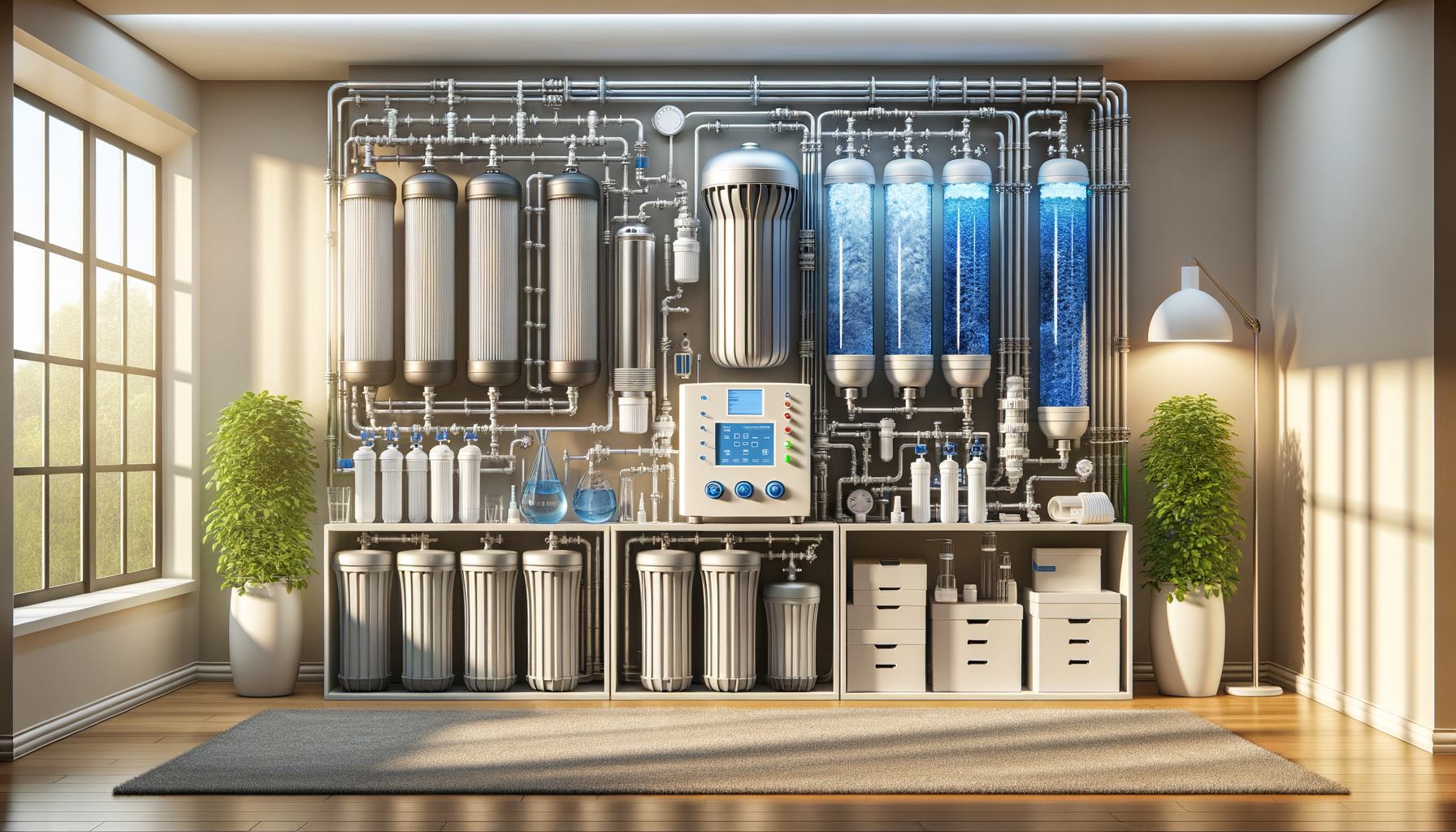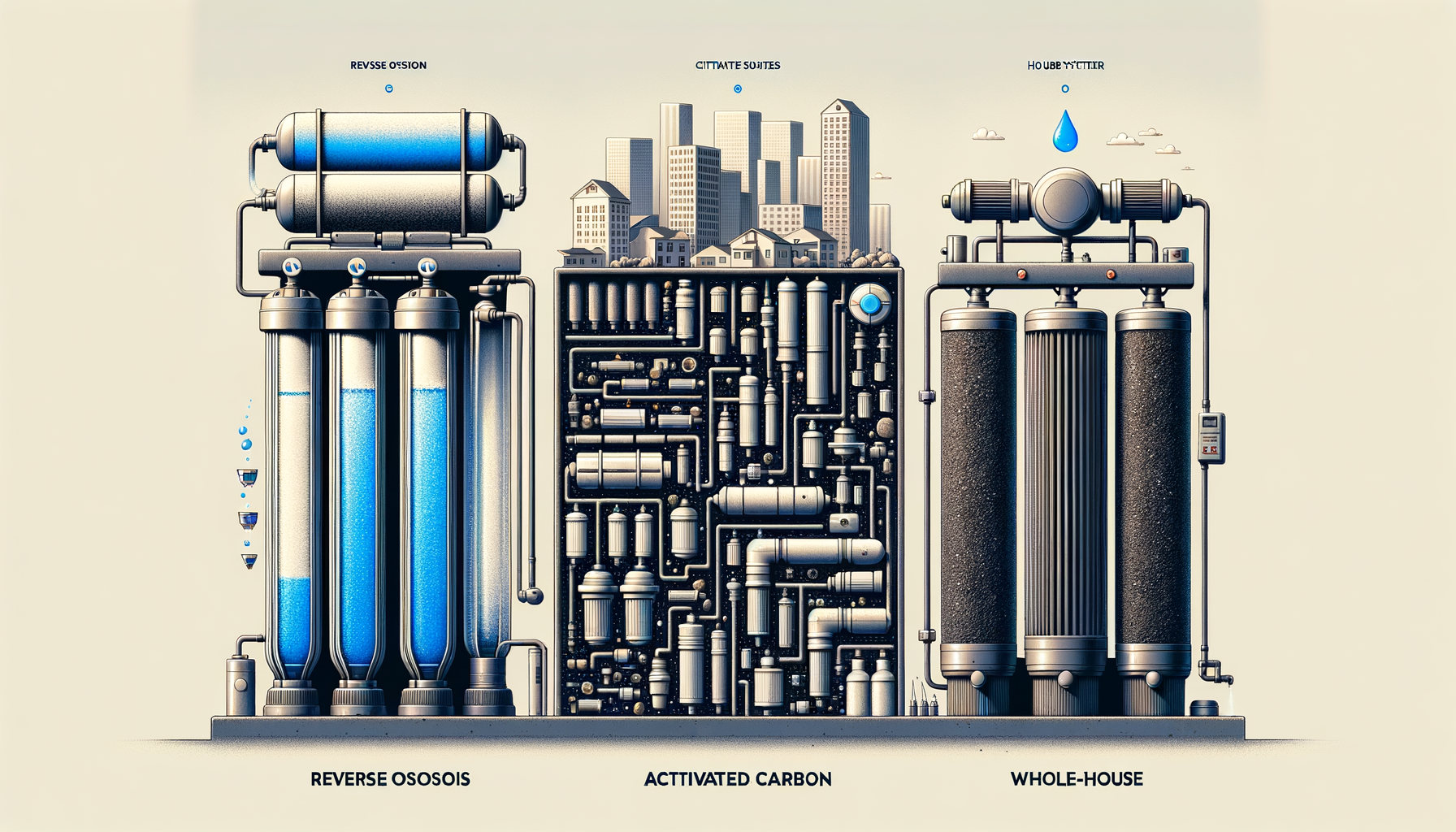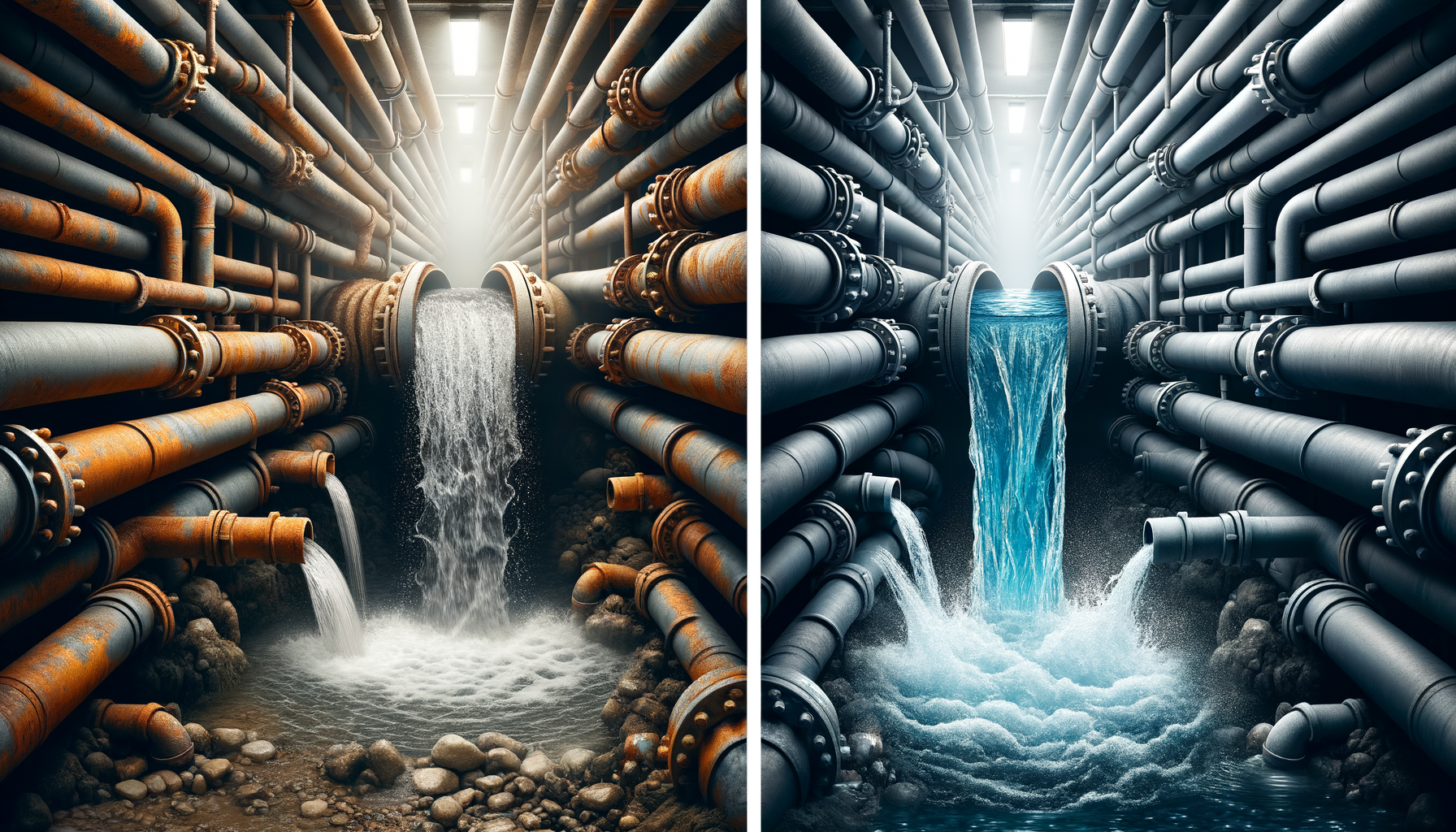Comprehensive Guide to Water Quality in Houston: Contaminants, Issues, and Water Filtration Solutions
by Ryan Moreau / updated February 28th, 2025
Houston, the largest city in Texas and the fourth-largest in the United States, is a sprawling metropolis known for its energy industry, medical research, and NASA’s Johnson Space Center. Despite its modern infrastructure, Houston faces significant water quality challenges due to industrial activities, aging pipelines, and natural disasters like hurricanes and flooding. In this comprehensive guide, we delve into the common contaminants found in Houston’s water, regional challenges, and effective filtration solutions. Begin by using our Water Quality Tool to obtain a customized analysis of your local water conditions.
Overview of Houston’s Water Sources
Houston’s water supply is a complex system that draws from both surface water and groundwater sources to meet the demands of its growing population. Key sources include:
- Surface Water from Rivers and Lakes: Approximately 86% of Houston’s drinking water comes from surface water sources, including the Trinity River, San Jacinto River, and Lake Houston.
- Groundwater Aquifers: The remaining 14% is supplied by groundwater from aquifers such as the Chicot Aquifer and Evangeline Aquifer.
- Water Treatment Plants: The city operates several major water purification plants, including the Northeast Water Purification Plant and the East Water Purification Plant, which treat and distribute water to residents.
Ensuring the quality of Houston’s water supply involves coordination between various agencies and continuous monitoring to address both man-made and natural contaminants.
Common Water Quality Contaminants in Houston
Houston’s unique industrial landscape and environmental conditions contribute to a range of water quality concerns. Utilize our Water Quality Tool to identify specific issues in your area, and consider the following common contaminants:
1. Total Trihalomethanes (TTHMs)
TTHMs are disinfection byproducts formed when chlorine used in water treatment reacts with natural organic matter. Elevated levels of TTHMs have been detected in some areas of Houston, potentially increasing the risk of cancer and reproductive issues over long-term exposure.
Water Filtration Options for TTHMs: Activated Carbon Water Filters, which effectively reduce TTHM levels.
2. Lead and Copper
Aging infrastructure in certain Houston neighborhoods can lead to the leaching of lead and copper into drinking water. Corrosion of pipes, especially in older homes, poses significant health risks, particularly to children and pregnant women.
Water Filtration Options for Lead and Copper: Reverse Osmosis Water Filters, Activated Carbon Water Filters
3. Arsenic
Arsenic contamination, primarily from natural deposits in the earth or from industrial and agricultural pollution, has been found in some of Houston’s groundwater sources. Long-term exposure can cause skin damage and has been linked to various cancers.
Water Filtration Options for Arsenic: Reverse Osmosis Water Filters.
4. Nitrates
Nitrate contamination often results from agricultural runoff, septic systems, and industrial waste. In Houston, nitrates can seep into groundwater, posing a risk of methemoglobinemia or “blue baby syndrome” in infants.
Water Filtration Options for Nitrates: Reverse Osmosis Water Filters.
5. Bacteria and Microorganisms
Natural disasters like hurricanes and flooding can compromise water treatment facilities and distribution systems, introducing bacteria such as E. coli and Giardia into the water supply.
Water Filtration Options for Microorganisms: Reverse Osmosis Water Filters with UV purification systems.
6. Industrial Chemicals (Volatile Organic Compounds – VOCs)
Houston’s extensive petrochemical industry contributes to the presence of VOCs like benzene, toluene, and xylene in water sources. These contaminants can cause adverse health effects, including liver and kidney damage.
Water Filtration Options for VOCs: Activated Carbon Water Filters.
7. Radium and Uranium
Certain areas around Houston have experienced contamination from natural radioactive elements like radium and uranium in groundwater. Prolonged exposure increases the risk of cancer and kidney toxicity.
Water Filtration Options for Radioactive Elements: Reverse Osmosis Water Filters, ion exchange systems.
8. Perfluorinated Compounds (PFCs)
PFCs, including PFOS and PFOA, are synthetic chemicals found in various industrial applications. They have been detected near industrial sites and airports in Houston, potentially affecting water supplies. These compounds are linked to developmental issues and other health problems.
Water Filtration Options for PFCs: Activated Carbon Water Filters, high-quality reverse osmosis systems.
9. Mercury
Mercury contamination can occur due to industrial discharges and natural deposits. Ingesting mercury-contaminated water can impact the nervous system and is particularly harmful to developing fetuses and young children.
Water Filtration Options for Mercury: Reverse Osmosis Water Filters.
Regional Water Quality Challenges in Houston
Houston’s geographical location and industrial base present unique water quality challenges. Key issues identified by the Texas Commission on Environmental Quality (TCEQ) and the EPA’s Houston Branch include:
1. Industrial Pollution
As a hub for the oil and gas industry, Houston is home to numerous refineries and chemical plants. Accidental spills and routine discharges can introduce pollutants into both surface and groundwater.
Efforts to monitor and regulate industrial emissions are ongoing, but residents near these facilities may face higher risks of exposure to contaminants.
2. Flooding and Natural Disasters
Houston is prone to hurricanes and heavy rainfall, leading to frequent flooding. Floodwaters can overwhelm sewer systems and water treatment plants, resulting in boil water notices and potential contamination from pathogens and chemicals.
Preparedness and infrastructure improvements are critical to mitigate these risks and ensure water safety during emergencies.
3. Aging Infrastructure
Like many large cities, Houston struggles with aging water distribution systems. Leaking pipes and mains not only waste water but also allow contaminants to enter the system.
Replacing and upgrading these systems is a significant challenge due to the costs and the city’s expansive size.
4. Groundwater Depletion and Subsidence
Heavy reliance on groundwater in certain areas has led to subsidence—the gradual sinking of land—which can damage infrastructure and alter natural drainage patterns, affecting water quality.
The shift towards more sustainable surface water usage is part of Houston’s strategy to combat this issue.
General Water Characteristics in Houston
Understanding the general characteristics of Houston’s water helps residents choose appropriate filtration solutions and anticipate potential issues:
1. Water Hardness
Houston’s water is considered moderately hard to hard due to the presence of dissolved minerals like calcium and magnesium. The hardness level can vary depending on whether the water comes from surface sources or groundwater.
Hard water can lead to scale buildup in plumbing, reduce the efficiency of appliances, and affect soap’s ability to lather.
To address hard water issues, consider installing a water softener system. If you’re unsure whether you need one, use our Water Softener Calculator for personalized recommendations.
2. Alkalinity and pH Levels
Houston’s water typically has a neutral to slightly alkaline pH, which helps minimize pipe corrosion. However, variations can occur, particularly after heavy rainfall or flooding events, which may temporarily affect pH levels.
- Neutral pH: Generally reduces the likelihood of leaching metals from pipes.
- Temporary Shifts: Environmental factors can cause fluctuations, highlighting the need for regular water quality monitoring.
Installing a whole-house filtration system with pH balancing capabilities can help maintain stable water conditions.
3. Taste and Odor
Some residents report a chlorine taste or smell in their tap water due to disinfection practices. Additionally, occasional algal blooms in surface water sources can impart earthy or musty odors.
- Chlorine Disinfection: Necessary for eliminating pathogens but can affect taste.
- Algal Blooms: Can occur seasonally, affecting water aesthetics.
An activated carbon filter is effective in reducing these tastes and odors, providing cleaner, better-tasting water.
Utilizing the Water Quality Tool for Houston Residents
To safeguard your household’s water, it’s crucial to understand the specific contaminants that may be present. Our Water Quality Tool offers Houston residents the ability to:
- Input their zip code for localized water quality reports.
- Identify common and emerging contaminants in their area.
- Receive tailored recommendations for effective water filtration solutions.
By taking advantage of this tool, you can make informed decisions about protecting your family’s health.
Recommended Filtration Solutions for Common Houston Contaminants
Based on the contaminants frequently found in Houston’s water supply, the following filtration systems are highly recommended:
1. Reverse Osmosis Systems
Reverse Osmosis (RO) Systems are capable of removing a wide range of contaminants, including heavy metals, nitrates, arsenic, and radioactive elements. They are ideal for addressing multiple water quality issues simultaneously.
2. Activated Carbon Filters
Activated Carbon Filters effectively reduce chlorine, VOCs, PFCs, and improve taste and odor. These filters are a great choice for municipal water supplies with chlorination.
3. UV Purification Systems
For concerns about microbial contamination, especially after flooding, UV purification systems can neutralize bacteria and viruses without adding chemicals to the water.
4. Water Softeners
To combat hard water issues, installing a water softener can prevent scale buildup, extend the life of appliances, and improve soap efficiency.
Local Water Testing Services in Houston
Accurate testing is essential for identifying the specific contaminants in your water supply. We recommend using SimpleLab for comprehensive laboratory-grade water testing. Their services provide:
- Easy-to-use test kits delivered to your home.
- Detailed analysis of a wide range of contaminants.
- Expert recommendations based on your results.
Having precise data empowers you to choose the most effective filtration solutions for your needs.
Case Studies: Addressing Water Quality Issues in Houston
Understanding how others have tackled water quality challenges can provide valuable insights:
1. Post-Hurricane Harvey Water Safety
In the aftermath of Hurricane Harvey in 2017, many Houston residents faced contaminated water supplies due to flooding. Boil water notices were issued, and some households installed RO systems with UV purification to ensure safe drinking water.
2. East Houston’s Industrial Impact
Communities near the Houston Ship Channel reported concerns over industrial pollutants. Local advocacy led to increased monitoring, and residents adopted activated carbon filters to reduce exposure to VOCs.
3. Lead Pipe Replacement Initiatives
In older neighborhoods, initiatives to replace lead service lines have been undertaken. Homeowners also installed point-of-use filters certified to remove lead while waiting for infrastructure upgrades.
Call to Action
Houston’s dynamic environment and industrial activities present unique water quality challenges that require proactive management. By understanding your local water issues and investing in appropriate filtration systems, you can significantly enhance the safety and quality of your household water.
Start by entering your zip code into our Water Quality Tool to receive a detailed analysis of your water supply. Explore our filter review articles to find the most effective systems for your needs. Finally, confirm your water’s safety with comprehensive water testing services, ensuring you have the clean, safe water your home deserves.







